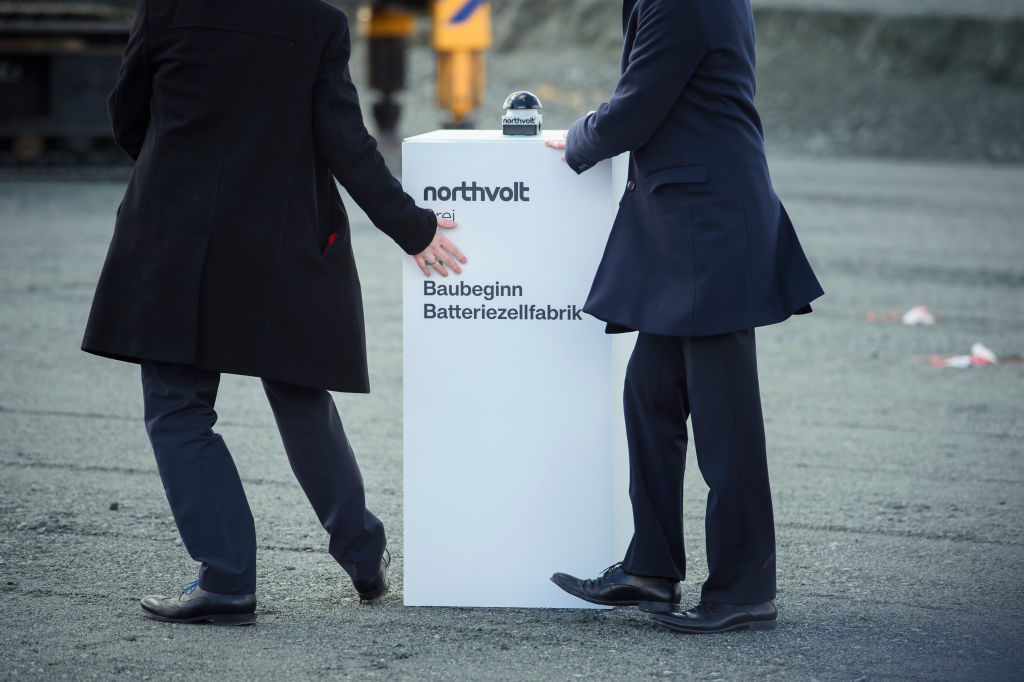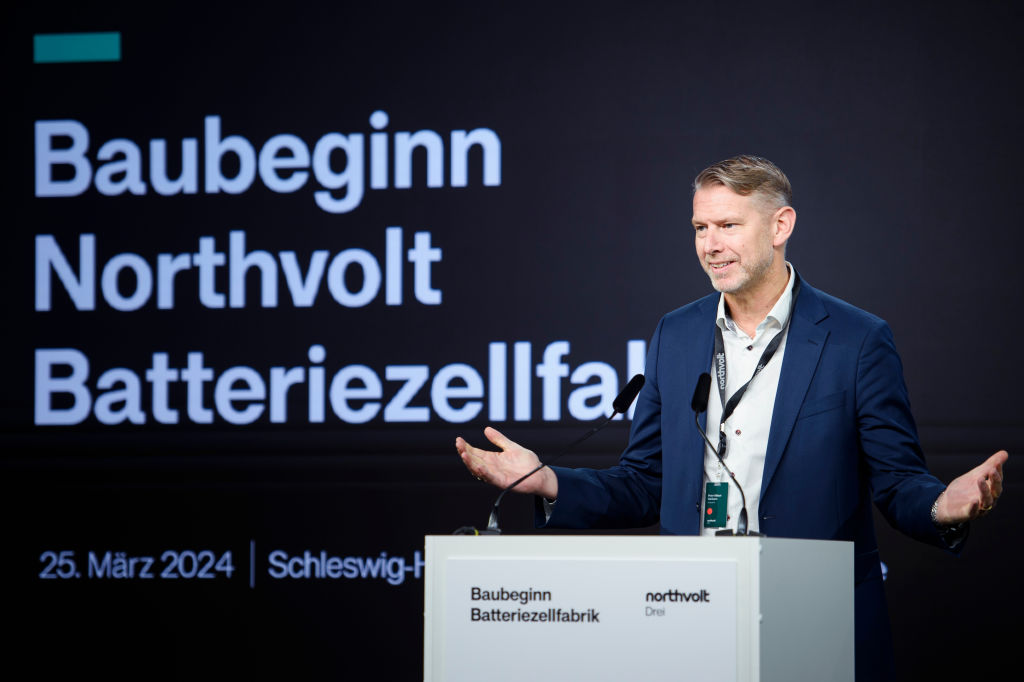‘Green’ darling Northvolt faced seizures by the Swedish Enforcement Authority, Kronofogden, the country’s debt collector, over unpaid bills.
On January 15, the debt collectors issued a seizure of SEK 4.8 million (€417,600) from the troubled Swedish battery manufacturer.
A day earlier, it seized SEK 6.7 million (€582,900) from the subsidiary Revolt, a battery recycling company.
Revolt’s battery recycling facility is located in Skellefteå, Sweden, adjacent to the Northvolt Ett gigafactory.
Northvolt’s companies currently have debts in Sweden of around SEK 650 million (€56.5 million) with the Enforcement Authority, and around SEK 16 million (€1.4.million) is subject to seizure – but this changes every day.
The seizure means that the bank is ordered to pay out money from Northvolt’s account to the debt collector.
“The money has not been paid out yet, but it usually does when we carry out seizures because the bank will otherwise be liable for payment,” Sami Lundqvist, the department head at the Enforcement Authority in Skellefteå, told Swedish news outlet SVT Västerbotten.
“You have to ask the company why they are not paying their debts,” Lundqvist added.
In a response to the Swedish media, Northvolt’s Head of Communications Matti Kataja released a statement saying “Due to the obligations Northvolt has under the Chapter 11 proceeding in the United States, it is not possible to pay old debts.”
Northvolt also announced earlier this week that it sold off its stake in the company Hydrovolt, which recycles batteries.
Hydrovolt was jointly owned between Norsk Hydro and Northvolt, but now Northvolt is selling its last share for SEK 76 million (€6.6 million) to Norsk Hydro.
Hydrovolt is Norway’s largest recycling plant for batteries from electric cars and other electric vehicles.
Norsk Hydro is now looking for long-term partners to co-finance Hydrovolt.
In 2023, Hydrovolt generated revenues of $2.45 billion (€2.37 billion) and losses of $11.3 billion (€10.94 billion).
Last November, the Norwegian company announced that it would stop investing in battery businesses and start phasing them out, becoming the latest company to scale down within green-tech.
Hydro told Reuters on Monday that it did not see its increased investment in Hydrovolt as contradicting this strategy.
“We view Hydrovolt a bit differently from our other battery operations. Hydrovolt has a recycling element that is closer to Hydro’s other operations,” a spokesperson from Hydro said.
“Battery recycling is something we discuss with our customers within the automotive industry who we deliver aluminium to, so there are quite a few synergy effects here,” he added.
On January 8, 2025, Northvolt held an extraordinary general meeting to address compliance with Swedish law, as its equity had fallen below half its registered share capital, and to vote on whether to continue operations or liquidate.
A report by Swedish economic researcher Jonas Grafström has criticised the EU’s industrial policy, citing Northvolt’s collapse as evidence of flawed taxpayer-funded investments. https://t.co/t1NwtBwJEd
— Brussels Signal (@brusselssignal) December 11, 2024
Northvolt is set to provide an update on its funding efforts to a US bankruptcy judge on January 28, coinciding with the anticipated depletion of its initial $100 million (€96.8 million) bankruptcy loan from truck maker Scania.
At the time of its Chapter 11 filing, the company had just $30 million in cash (€29 million)—an amount it stated would sustain operations for only about a week.
Affärs Välden, a Swedish magazine, reported based on documents submitted to the American bankruptcy court, that by the end of this week, Northvolt also needs to have active cathode material delivered.
“The material is a critical component in battery production and without deliveries, production stoppages can be expected as early as January 25,” the magazine said.
“Northvolt needs as much as 400 tonnes of cathode material as early as this Friday, January 17. Without that, a production stop awaits at the Skellefteå factory.”
The Swedish company allegedly proposed a warehouse financing agreement to repay loans for the material.
These kinds of agreements are short-term loan structures commonly used in trade finance and asset-backed lending. They allow a company to borrow money by using inventory or other assets held in a warehouse as collateral.
Northvolt already warned that a production halt would have “significant negative consequences”, such as delaying production, reputational damage and the disruption of ongoing financing efforts.
Northvolt previously planned to produce its own active cathode material in Skellefteå, but Upstream 1, as the factory was called, was mothballed in September. Instead, the company has been forced to import the critical component from China, Affärs Välden noted.
The bankruptcy of Swedish battery developer and manufacturer Northvolt is set to cost the European taxpayer a hefty sum. https://t.co/4PRhvG5ExG
— Brussels Signal (@brusselssignal) November 26, 2024
One day after the bankruptcy filing on November 21, the firm — viewed as a crucial component of the European Green Deal — saw its CEO Peter Carlsson announce his resignation, claiming it was “a good moment to pass the reins to the next generation of leaders”.
The company had been trying to secure $300 million (€287.6 million) from investors but negotiations failed.
In total, Northvolt also has $5.84 billion (€5.62 billion) of debt. Last year, it made a loss of $1.2 billion (€1.15 billion)
Northvolt was supposed to provide an alternative to US and Chinese competition in battery making and help to power the European push for greater autonomy in energy and electric vehicle production.
Yet, rather than being an independent “green” innovator, Northvolt has used ageing Chinese technology, with 20-year-old equipment that was already out of date when put in place, which led to reports about toxic waste, dangerous gases and a lack of proper safety equipment.
Rather than being an independent green innovator, Northvolt uses old Chinese technology, with 20-year-old equipment that was already out of date when put in place. https://t.co/oCI3Guhuj5
— Brussels Signal (@brusselssignal) October 9, 2024





